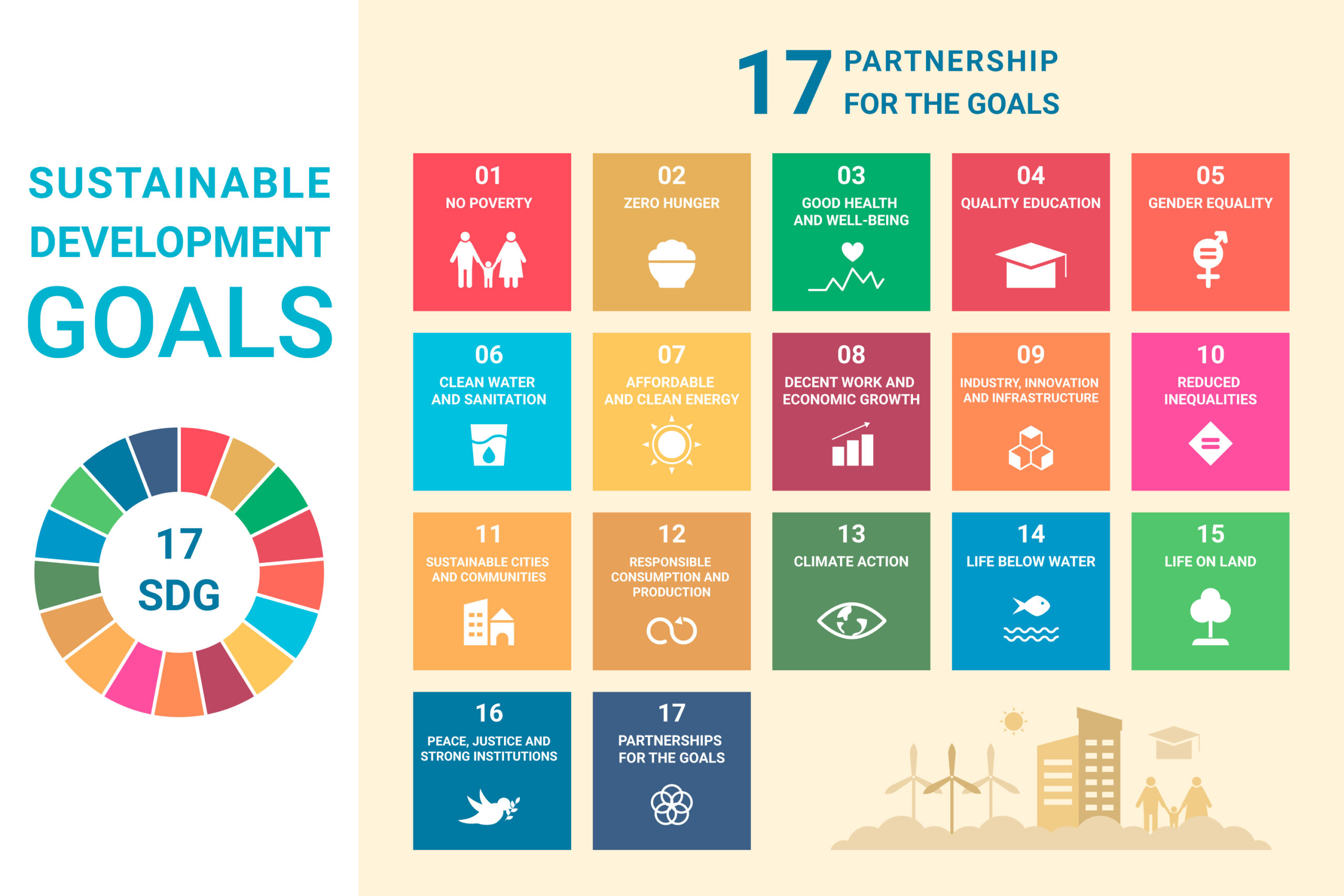
Sustainable Development Goals – Role in Education & Students’ life
The 17 Sustainable Development Goals (SDGs) were adopted by all United Nations Member States in 2015 to end poverty, reduce inequality and build more peaceful, prosperous societies by 2030 are there to empower globally. Investing SDGs in young minds is to achieve a more equitable and to promote among others through education by living a sustainable human life, which acts like a tool to support them, to develop their research, critical thinking, problem solving, teamwork, and communication skills. Also, to support the 21st century skills to prepare young lives, towards the real-world problems and to face it with real action in future. Quality Education Goal empowers the global young minds with the knowledge, skills, values and attitudes to address the interconnected global challenges, to fight against the climate changes – carbon footprint, forestation, e-waste, environmental degradation, loss of biodiversity, poverty and inequality.
Practicing sustainability empowers children to construct knowledge, explore values and develop respect towards Nature, which lays the foundations for an environmentally responsible adulthood in the next future. With this, students act sustainably in their daily lives to foster environmental consciousness and lifelong learning in their classroom by practicing these major principles as: Connect and develop respect towards Nature. Analyse the Climatic changes. Initiate a service project with peers. Learn about all sectors of people who make a difference in society. Research on various businesses and its products, with their effects of Carbon footprint and green gas emissions. Start an Environmental Awareness Challenge. Create a model of mindfulness to visit grandparents, animal rescue centres, old age homes etc. Promote and create posters or presentations to inspire others. Encourage out-of-the-Box-thinking and spread to local communities. Meet and collaborate with NGOs and govt schools for better outputs.
The SDGs key benefits of learnings and experiences reflect on students’ life to improve quality of life. Let the young lives protect, preserve and conserve the natural environment for their future needs. The young succeed to achieve their stability and the society experience with a good quality of life upon the natural environment. Educators can create or suggest few important key suggestions to inspire and motivate SDG activities as a classroom project or activities – fundraising, creative arts, sale of recycle products, clean-up activities, zero waste drives, debates, blog writings, meeting farmers, gardening, collaborate with NGOs and govt schools, weekly plantation programs, surveys and researches on climate changes.

